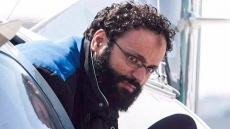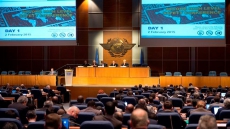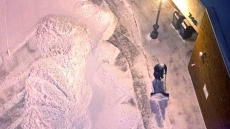OTTAWA — How to avoid missile batteries and navigate defensive radar systems in Syria are among the issues preoccupying military planners as Parliament debates the merits of expanding and extending Canada's Middle East mission.
So far, the debate among MPs has revolved around the need for a broader military mission in Iraq and the legality of extending air strikes to include that country's troubled neighbour.
Scant attention has been paid to the extraordinary nature of what pilots are being asked to do and the risks they'll face.
Extremists in Syria won't have much in the way of air defences, other than shoulder-launched missiles that are mostly useless against high-flying jets.
But the mission — bombing targets belonging to the militant group Islamic State of Iraq and the Levant — is unprecedented in the sense that Canadian jets are being deployed with no effort to suppress or destroy potential anti-aircraft threats, defence experts say.
The opening shots of allied air forces in Libya, Kosovo, and Iraq during the first Gulf War, were always directed at taking down the enemy's air defence network, which in Syria consists of at least 131 active Russian-made surface-to-air missile sites.
Destroying that network is not part of the mission.
Flying into Syria requires a high level of trust that no one in that country's military has an itchy trigger finger. It will also necessitate clear rules of engagement for pilots that'll likely include taking out missile batteries that lock on to them with radar.
Defence Minister Jason Kenney has noted that no coalition jets have been fired upon by the Syrians, and says he has a high level of confidence in the U.S. commanders running the war.
"The military advice I've received is that the Syrian military has no radar coverage or anti-aircraft armaments in that part of Syria," Kenney told CTV's Question Period on Sunday.
A study by Australian defence researchers, first written in 2010 but updated in 2012, shows there are 22 modern early warning radar sites in the embattled country — five of which are in territory where coalition jets are expected to fly. Whether those sites are still operational after years of bloody conflict remains unclear.
Kenney said hundreds of sorties have already been flown over eastern Syria "with no risk to our allies."
There's a reason for that, one defence expert said.
"I think they've made it clear through third-party interlocutors that if the Syrian air defence radar lights up, they'll take it out," said retired colonel George Petrolekas of the Conference of Defence Associations.
That is how allied air forces have established no-fly zones in various parts of the Middle East over the years.
Whether Canadian pilots will be given the same orders is unclear.
A senior defence source said "this is unique and there is more risk" associated with trying to avoid Syrian defences. Pilots could be left with no choice "but to take out somebody who's painted (targeted) them."
The Australian study noted that the anti-aircraft network was showing its age.
"Syria's SAM network is very robust on paper, and would appear to offer a significant degree of protection at first glance, but this is not necessarily the case," said the report written for Air Power Australia.
"Against a limited incursion, the Syrian air defence network remains capable, despite the reliance on aging Soviet-era systems.... Said reliance on Soviet-era legacy SAM systems will provide a serious handicap when facing a major air incursion by a modern opponent."
The only coalition jet to crash while taking part in the anti-ISIL mission belonged to Jordan, and that was apparently the result of mechanical trouble. The pilot was captured and eventually burned alive by militants.
Kenney told CTV there's "an inherent risk" in any military operation.
"We have contingencies that we develop — in this case with the United States — for rapid evacuation in the case of an incident like that," of a downed Canadian pilot.
The United Arab Emirates briefly suspended its combat mission against ISIL in February amid concerns about the coalition's ability to recovered downed pilots. The U.S. has since moved combat search and rescue aircraft and commandos to northern Iraq to be closer to the front in case of emergency.




